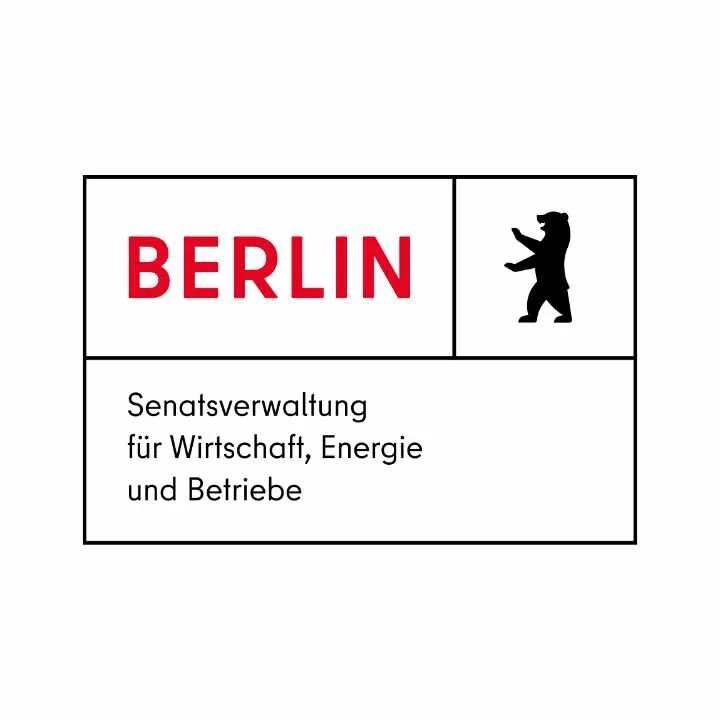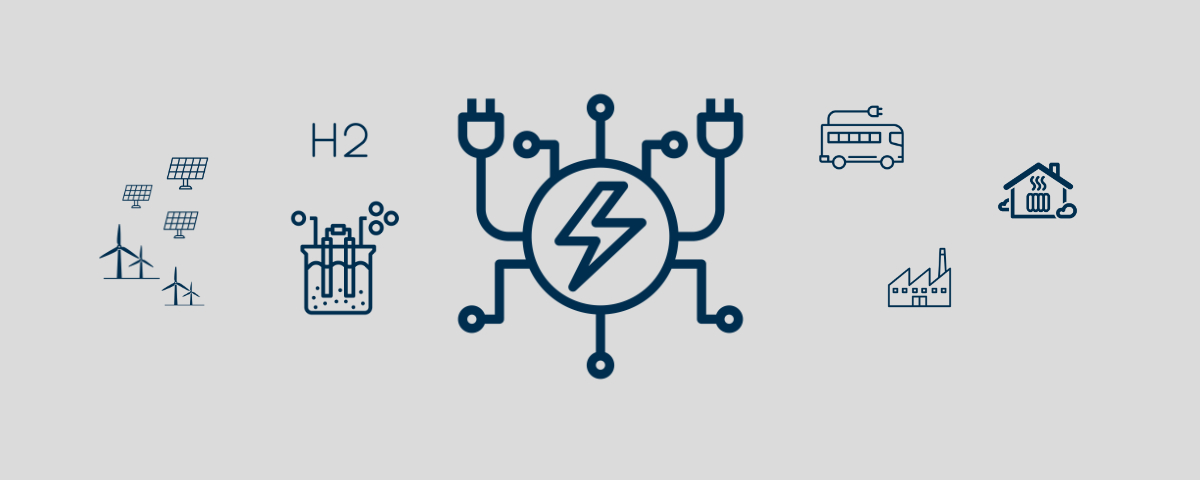
Study on the potential of green hydrogen for the energy transition
2. February 2023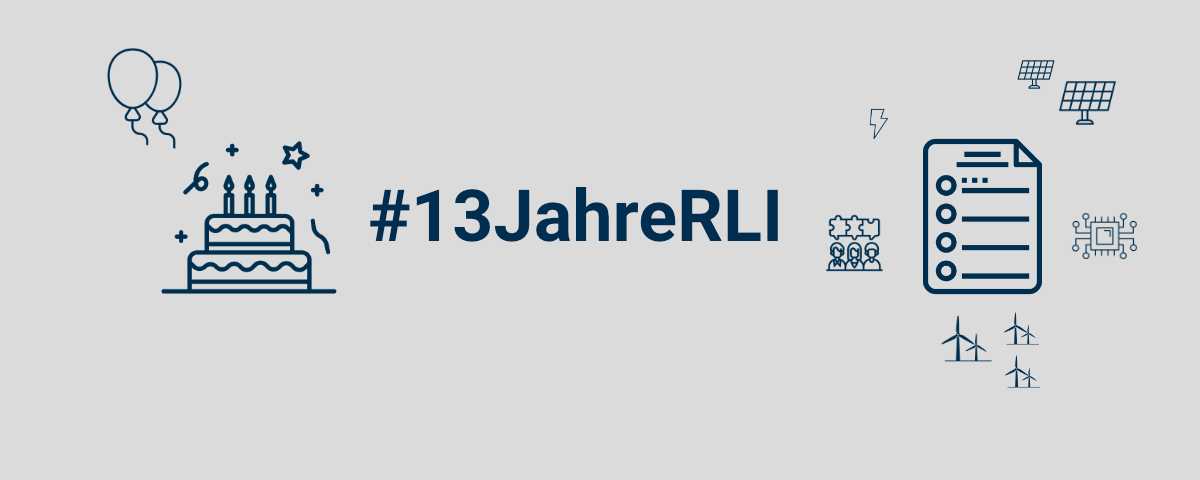
13th birthday of the RLI – 13 Challenges of the energy transition
8. February 2023Retail4Multi-Use – Investigation of multi-use concepts at charging stations in the retail sector
In the Retail4Multi-Use project, RLI scientists are analyzing the use of charging infrastructure (LIS) in the retail sector. Together with partner organizations, they will determine the potential for concepts for the multiple use of LIS.
Despite increasing electrification of the transport sector, the expansion of charging options is delayed by long approval and planning processes. Charging facilities are available or. planned in the retail sector, but these are often underutilized and operated with insufficient profitability. The project team will survey the potential for third-party use of LIS in retail by user groups that can be planned (e.g., cab industry, logistics, car sharing, etc.). This targeted shift of charging to semi-public spaces can relieve the need for charging network expansion in other areas and thus reduce network expansion needs. The scientists are also developing a concept for a digital matching platform. Like a marketplace, this will identify and easily match supply and demand for charging options. The results should be transferable to other types of locations and regions, such as the housing industry, parking garages and rural areas.
Relieving the burden of charging and network infrastructure expansion in Berlin.
For optimal multiple use of LIS in Berlin's retail sector, all locations must be recorded and the parking space supply analyzed. The project team will implement this with the help of GIS analyses. The scientists will then identify the requirements for the locations. These include, for example, the accessibility of the parking spaces and vehicles, protection against vandalism, and the type of electricity billing required.
Identification of needs
The project team also conducts stakeholder workshops, interviews with experts and a survey. In this way, the various groups of users, such as cab drivers, car-sharing providers, residents, or tradespeople, who have a plannable need for the retail LIS at defined times can be identified. Together with these groups, exemplary usage scenarios are to be developed in order to simulatively survey the charging potential in the entire Berlin retail sector. On this basis, the scientists will be able to calculate potential savings in charging infrastructure by reducing the load on other charging options in public and private spaces.
Optimal location concept through thorough analysis
The scientists take many factors into account in their analyses. These include, for example, parking space design or questions about where there is a grid connection, what the parking space utilization looks like in regular operation and what electrification plans already exist. The local electricity distribution network also plays a role here. The impact on grid receptivity for electromobility needs to be assessed. In addition, there are studies on the provision of flexibility for the power grid. This can be achieved, for example, through stationary storage or different usage groups. On this basis, the project team can plan charging hubs. As part of Retail4Multi-Use, the scientists will also determine what requirements there are for the legal and procedural framework and what options exist for accelerating the implementation of multi-use charging hubs.
Project period: January 2023 to December 2025
Despite increasing electrification of the transport sector, the expansion of charging options is delayed by long approval and planning processes. Charging facilities are available or. planned in the retail sector, but these are often underutilized and operated with insufficient profitability. The project team will survey the potential for third-party use of LIS in retail by user groups that can be planned (e.g., cab industry, logistics, car sharing, etc.). This targeted shift of charging to semi-public spaces can relieve the need for charging network expansion in other areas and thus reduce network expansion needs. The scientists are also developing a concept for a digital matching platform. Like a marketplace, this will identify and easily match supply and demand for charging options. The results should be transferable to other types of locations and regions, such as the housing industry, parking garages and rural areas.
Relieving the burden of charging and network infrastructure expansion in Berlin.
For optimal multiple use of LIS in Berlin's retail sector, all locations must be recorded and the parking space supply analyzed. The project team will implement this with the help of GIS analyses. The scientists will then identify the requirements for the locations. These include, for example, the accessibility of the parking spaces and vehicles, protection against vandalism, and the type of electricity billing required.
Identification of needs
The project team also conducts stakeholder workshops, interviews with experts and a survey. In this way, the various groups of users, such as cab drivers, car-sharing providers, residents, or tradespeople, who have a plannable need for the retail LIS at defined times can be identified. Together with these groups, exemplary usage scenarios are to be developed in order to simulatively survey the charging potential in the entire Berlin retail sector. On this basis, the scientists will be able to calculate potential savings in charging infrastructure by reducing the load on other charging options in public and private spaces.
Optimal location concept through thorough analysis
The scientists take many factors into account in their analyses. These include, for example, parking space design or questions about where there is a grid connection, what the parking space utilization looks like in regular operation and what electrification plans already exist. The local electricity distribution network also plays a role here. The impact on grid receptivity for electromobility needs to be assessed. In addition, there are studies on the provision of flexibility for the power grid. This can be achieved, for example, through stationary storage or different usage groups. On this basis, the project team can plan charging hubs. As part of Retail4Multi-Use, the scientists will also determine what requirements there are for the legal and procedural framework and what options exist for accelerating the implementation of multi-use charging hubs.
Project period: January 2023 to December 2025
In this project, RLI assumes the following tasks:
- Conducting stakeholder workshops to gather requirements for cooperations at the charging station
- Development and evaluation of concepts for technical implementation for selected retail locations
- Transfer of the approaches for individual locations to the entire Berlin retail sector
- Comparison between a potentially possible charging infrastructure expansion with and without the implementation of multiple use at the charging pole and determination of the relief potential for the charging and network infrastructure expansion
- Creation of a standardization guide for the entire federal territory
- Development of a matching platform
- Transfer of the findings to other regions and areas of application using the same methods











